World Environment Day 2016, a global outreach campaign organized by United Nations, celebrated its 42nd anniversary on June 5. It’s a global platform for raising awareness and taking action on what it considers to be increasingly urgent issues. About 25% of the world’s CO2 emissions are tied to transportation globally, according to the International Energy Agency; and about 30% in the U.S., according to the Union of Concerned Scientists. Here are the latest developments on clean, advanced vehicles around the world.
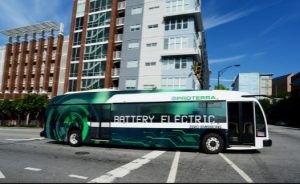 US-China electric bus competition: On Friday in Los Angeles, U.S. Secretary of Transportation Anthony Foxx and Chinese Minister of Transport Yang Chuantang signed an agreement officially announcing the US-China “Race to Zero Emissions.” One city from each of the two countries will be competing to determine which one will deploy the highest percentage of emission free buses by 2025. The race is designed to improve air quality in urban areas and prevent climate change. For each of the cities entering the competition, the minimum size of the fleet must be 200 or more buses. Two smaller transit properties can form a team and compete in the race if their combined fleet size is 200 buses or more. Potential participants can learn more at https://www.transportation.gov/r2ze. “This challenge will hasten the development of new and emerging technologies that will move us away from fossil fuels and race us closer to our ultimate goal of zero emissions, while creating good jobs and economic growth in both the United States and China,” said Secretary Foxx.
US-China electric bus competition: On Friday in Los Angeles, U.S. Secretary of Transportation Anthony Foxx and Chinese Minister of Transport Yang Chuantang signed an agreement officially announcing the US-China “Race to Zero Emissions.” One city from each of the two countries will be competing to determine which one will deploy the highest percentage of emission free buses by 2025. The race is designed to improve air quality in urban areas and prevent climate change. For each of the cities entering the competition, the minimum size of the fleet must be 200 or more buses. Two smaller transit properties can form a team and compete in the race if their combined fleet size is 200 buses or more. Potential participants can learn more at https://www.transportation.gov/r2ze. “This challenge will hasten the development of new and emerging technologies that will move us away from fossil fuels and race us closer to our ultimate goal of zero emissions, while creating good jobs and economic growth in both the United States and China,” said Secretary Foxx.
In large part inspired by the successful federal “Race to the Top” education program in the U.S., CALSTART developed the Race to Zero concept in 2014. In June 2015, Secretary of State John Kerry announced that the Race to Zero had been endorsed in concept by the U.S.-China Climate Change Working Group. A five-year federal transportation bill came through in December dedicating $55 million annually for the purchase of zero or near-zero emission buses; and the Chinese government has made attractive incentives available through the national government and many of the larger cities.
CALSTART is working under contract with the U.S. DOT to support the Race to Zero Emissions. Entrants in the competition will be able to take part in annual meetings and able to learn about the latest developments in electric bus and charging technology in both the United States and China. “CALSTART is eager to begin working with cities and transit properties that not only want to take full advantage of the advances in zero emission bus technology, but also wanted to become part of a larger global effort to prevent climate change,” said CALSTART President and CEO, John Boesel.
Mahindra launches 2nd EV: In commemoration of World Environment Day, Mahindra Electric launched the e-Verito, its second all-electric car in the country; it’s another step in the Indian automaker’s efforts to offer the most affordable electric vehicles in the world. The e-Verito’s base price starts at 950,000 rupees (about $14,225). Mahindra is already selling the e2o electric hatchback in India. The e-Verito will come with a 72V 3-phase AC induction motor producing maximum gross power of 41 hp @3500 rpm and maximum torque of 91 Nm @3000 rpm, mated to an automatic transmission. It can be quick charged in two hours through fast charging at the top-end option and price for the e-Verito.
The Mahindra e-Verito and e20 are tied to the discontinued Reva, with the e20’s exterior styling very similar to the Reva. The Mahindra e20 may be the most affordable electric car in the world with a starting price of 592,000 rupees (about $8,865). The e20 can travel 120 kilometers (74.5 miles) on a single charge.
Norway may ban fossil fuels: Norway’s political system may soon adopt the world’s fastest fossil fuel ban. Politicians from both sides of the political spectrum have reportedly reached some concrete conclusions about 100% of Norwegian new vehicles sold running on clean fuel by 2025. Norway may ban the sale of all fossil fuel-based cars by that year, continuing its trend towards becoming one of the most ecologically progressive countries on the planet, according to reports.
There has been some denial from opponents of the measure that the move has been confirmed. If passed, it would be particularly significant because a large proportion of Norway’s funds rely on the country’s petroleum industry. The government has offered attractive incentives for electric vehicle purchases in the country. That helped the nation experience the highest percentage of EV sales ever recorded – with EVs making up 23% of new vehicle sales in the country last year.
South Korea emissions tests and green car sales: The South Korean government will be enacting real-world emissions tests of diesel vehicles in 2017, and unveiled ambitious new targets for environmentally-friendly vehicle sales. South Korea’s cities have become choked by smog, similar to what China has been seeing. The South Korean government wants to bring air quality up to western European levels within a decade. The government would like to raise its green vehicle target to 30% of new vehicles sales by 2020 – up from 2.6 percent currently. The government also promised to support growth in plug-in electrified vehicle sales by increasing new charging stations to 10 times their current level.
Israel base for advanced vehicle technologies: While Israel had been the home to the now-defunct Better Place electric vehicle battery-swapping company, that company’s presence and other local innovators have brought investors to the country. Mobileye, a technology company that develops vision-based advanced driver assistance systems providing warnings for collision prevention and mitigation, has been gaining attention globally and seems to symbolize advance technology innovations in the country. Waze, the world’s largest community-based traffic and navigation mobile app, started up in Israel before being acquired by Google for over $1 billion. Analysts say these two companies were part of a big wave of auto sector startups. Better Place is considered to have served as an “incubator” in Israel for talented developers and professionals who later moved on to new startups or established vehicle technology companies. Israel has been a vital space for General Motors, which a few years ago invested in an R&D center there. The technologies developed in Israel, including those developed in the Global Connected Consumer project led by the Israeli R&D division, will be integrated into millions of GM vehicles worldwide in the coming years.
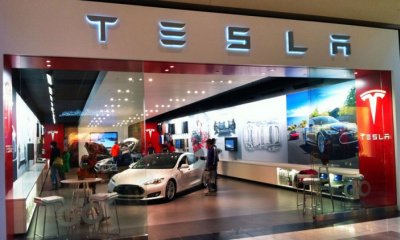 federal judge overseeing the case. The settlement means that CEO Elon Musk will be stepping down as chairman for three years, and that two new independent directors will be appointed to the board. Musk will be paying $20 million, and Tesla will pay another $20 million, in fines distributed to harmed investors. Musk’s insulting tweet last week on Thursday, mentioning that the SEC is changing its name to “Shortseller Enrichment Commission.”
federal judge overseeing the case. The settlement means that CEO Elon Musk will be stepping down as chairman for three years, and that two new independent directors will be appointed to the board. Musk will be paying $20 million, and Tesla will pay another $20 million, in fines distributed to harmed investors. Musk’s insulting tweet last week on Thursday, mentioning that the SEC is changing its name to “Shortseller Enrichment Commission.”
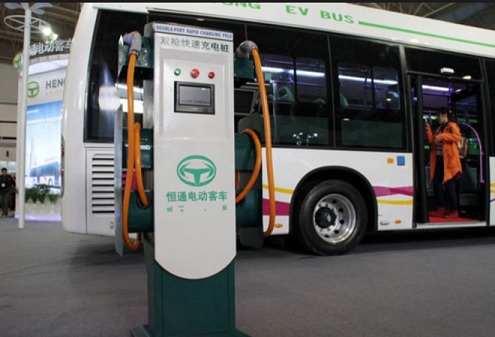 Bloomberg New Energy Finance. That will mean last year’s 386,000 units sold will go up to 1.2 million in the next seven years. Strong domestic support and aggressive city-level targets will mean China accounts for 99% of the world’s battery-powered buses by 2025, the report said. Last year’s electric bus sales dropped from 115,700 sold in China in 2016 to 89,546 last year due to policy changes and incentives being cut back during that time. This year will see changes as policy from national and local/city governments start to collide,
Bloomberg New Energy Finance. That will mean last year’s 386,000 units sold will go up to 1.2 million in the next seven years. Strong domestic support and aggressive city-level targets will mean China accounts for 99% of the world’s battery-powered buses by 2025, the report said. Last year’s electric bus sales dropped from 115,700 sold in China in 2016 to 89,546 last year due to policy changes and incentives being cut back during that time. This year will see changes as policy from national and local/city governments start to collide,  consumers and fleets make sound purchase decisions. One of these will be taking place February 10-19 during the 2018 Chicago Auto Show, where attendees will have the chance to test drive vehicles such as the all-new 2018 Nissan Leaf, 2018 Chrysler Pacifica Hybrid, and 2018 Mitsubishi Outlander PHEV. Chicago Area Clean Cities Coalition is hosting the test drives in partnership with the Midwest EVOLVE program. The American Lung Association is a key sponsor to Midwest EVOLVE. The Clean Cities partners include Twin Cities Clean Cities Coalition, Chicago Area Clean Cities, Clean Fuels Ohio, Earth Day Coalition, Greater Lansing Area Clean Cities, North Dakota Clean Cities, South Shore Clean Cities, and Wisconsin Clean Cities.
consumers and fleets make sound purchase decisions. One of these will be taking place February 10-19 during the 2018 Chicago Auto Show, where attendees will have the chance to test drive vehicles such as the all-new 2018 Nissan Leaf, 2018 Chrysler Pacifica Hybrid, and 2018 Mitsubishi Outlander PHEV. Chicago Area Clean Cities Coalition is hosting the test drives in partnership with the Midwest EVOLVE program. The American Lung Association is a key sponsor to Midwest EVOLVE. The Clean Cities partners include Twin Cities Clean Cities Coalition, Chicago Area Clean Cities, Clean Fuels Ohio, Earth Day Coalition, Greater Lansing Area Clean Cities, North Dakota Clean Cities, South Shore Clean Cities, and Wisconsin Clean Cities.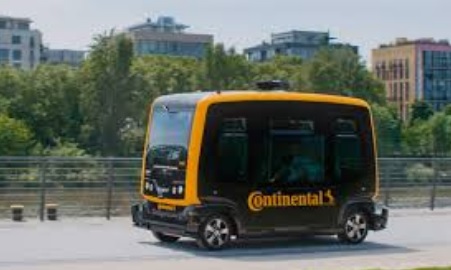 is a testing ground for automated technology that can be supplied to OEMs. The German supplier is watching several OEMs – including General Motors, Ford, Renault-Nissan, and Daimler – making moves toward autonomous mobility services. That might be through an alliance with Lyft, Uber, Maven, Waymo, or another partner committed to the new technology and ride services it has to offer. While the robo-taxi label has stuck in the past year, it’s much more than a taxi ride. This will include shared rides, point-to-point short trips, transporting groups, taxi rides, and shuttle services.
is a testing ground for automated technology that can be supplied to OEMs. The German supplier is watching several OEMs – including General Motors, Ford, Renault-Nissan, and Daimler – making moves toward autonomous mobility services. That might be through an alliance with Lyft, Uber, Maven, Waymo, or another partner committed to the new technology and ride services it has to offer. While the robo-taxi label has stuck in the past year, it’s much more than a taxi ride. This will include shared rides, point-to-point short trips, transporting groups, taxi rides, and shuttle services.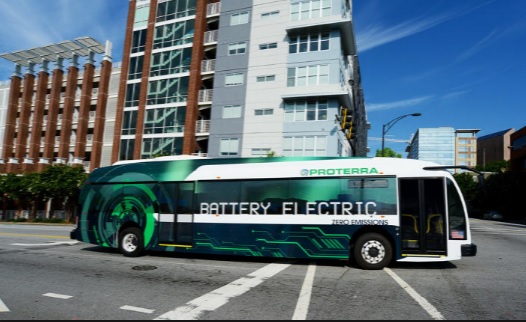 offers a 20% increase in efficiency over Proterra’s standard ProDrive system. For the Catalyst E2 max model, the DuoPower drivetrain enables a nominal range of 426 miles on a single charge, which the company says far exceeds the average distance of North American transit routes. Separately, the company announced that major bus and coach manufacturer
offers a 20% increase in efficiency over Proterra’s standard ProDrive system. For the Catalyst E2 max model, the DuoPower drivetrain enables a nominal range of 426 miles on a single charge, which the company says far exceeds the average distance of North American transit routes. Separately, the company announced that major bus and coach manufacturer 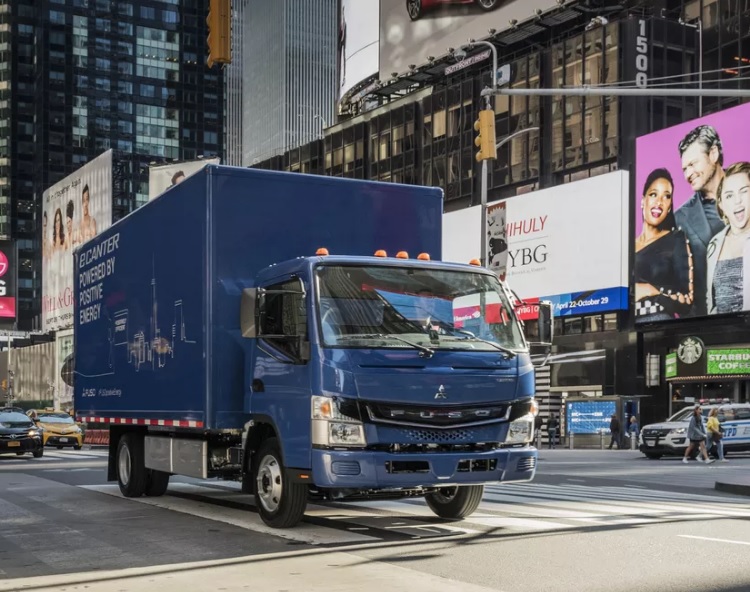 Show in Atlanta on Monday, the two companies announced they’ll be jointly developing an electric medium-duty truck for the North American market. It will roll out as soon as 2019. These two companies forged an alliance earlier this year with VW investing $256 million for a 17% stake in Navistar. During a separate presentation,
Show in Atlanta on Monday, the two companies announced they’ll be jointly developing an electric medium-duty truck for the North American market. It will roll out as soon as 2019. These two companies forged an alliance earlier this year with VW investing $256 million for a 17% stake in Navistar. During a separate presentation, 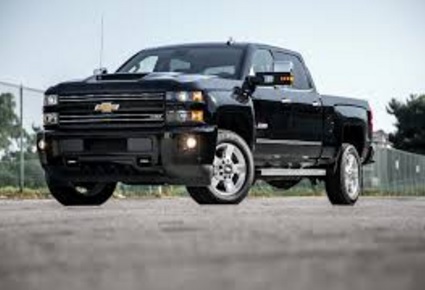 Ram 2500. All three pickups were equipped with four-door crew-cab bodies, turbodiesel engines, and four-wheel drive. While being more efficient than they were years ago, they only achieved 14-15 mpg, which was 1-2 mpg less than their gasoline-powered light-duty counterparts. Contractors and other truck buyers rely on these heavy pickups to buy hundreds of thousands of them per year. The consumer publication wants buyers to be adequately informed.
Ram 2500. All three pickups were equipped with four-door crew-cab bodies, turbodiesel engines, and four-wheel drive. While being more efficient than they were years ago, they only achieved 14-15 mpg, which was 1-2 mpg less than their gasoline-powered light-duty counterparts. Contractors and other truck buyers rely on these heavy pickups to buy hundreds of thousands of them per year. The consumer publication wants buyers to be adequately informed. Republic Services tripling RNG: Waste disposal company
Republic Services tripling RNG: Waste disposal company 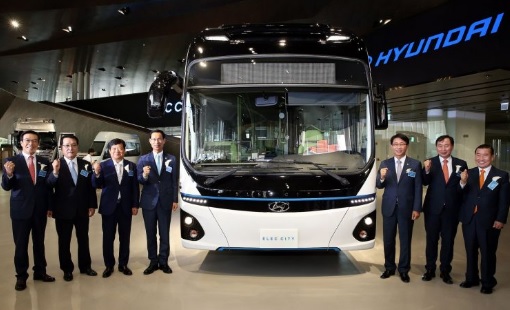 Hyundai electric bus: Hyundai just revealed
Hyundai electric bus: Hyundai just revealed  US-China electric bus competition: On Friday in Los Angeles, U.S. Secretary of Transportation Anthony Foxx and Chinese Minister of Transport Yang Chuantang signed an agreement officially announcing the US-China “Race to Zero Emissions.” One city from each of the two countries will be competing to determine which one will deploy the highest percentage of emission free buses by 2025. The race is designed to improve air quality in urban areas and prevent climate change. For each of the cities entering the competition, the minimum size of the fleet must be 200 or more buses. Two smaller transit properties can form a team and compete in the race if their combined fleet size is 200 buses or more. Potential participants can learn more at
US-China electric bus competition: On Friday in Los Angeles, U.S. Secretary of Transportation Anthony Foxx and Chinese Minister of Transport Yang Chuantang signed an agreement officially announcing the US-China “Race to Zero Emissions.” One city from each of the two countries will be competing to determine which one will deploy the highest percentage of emission free buses by 2025. The race is designed to improve air quality in urban areas and prevent climate change. For each of the cities entering the competition, the minimum size of the fleet must be 200 or more buses. Two smaller transit properties can form a team and compete in the race if their combined fleet size is 200 buses or more. Potential participants can learn more at